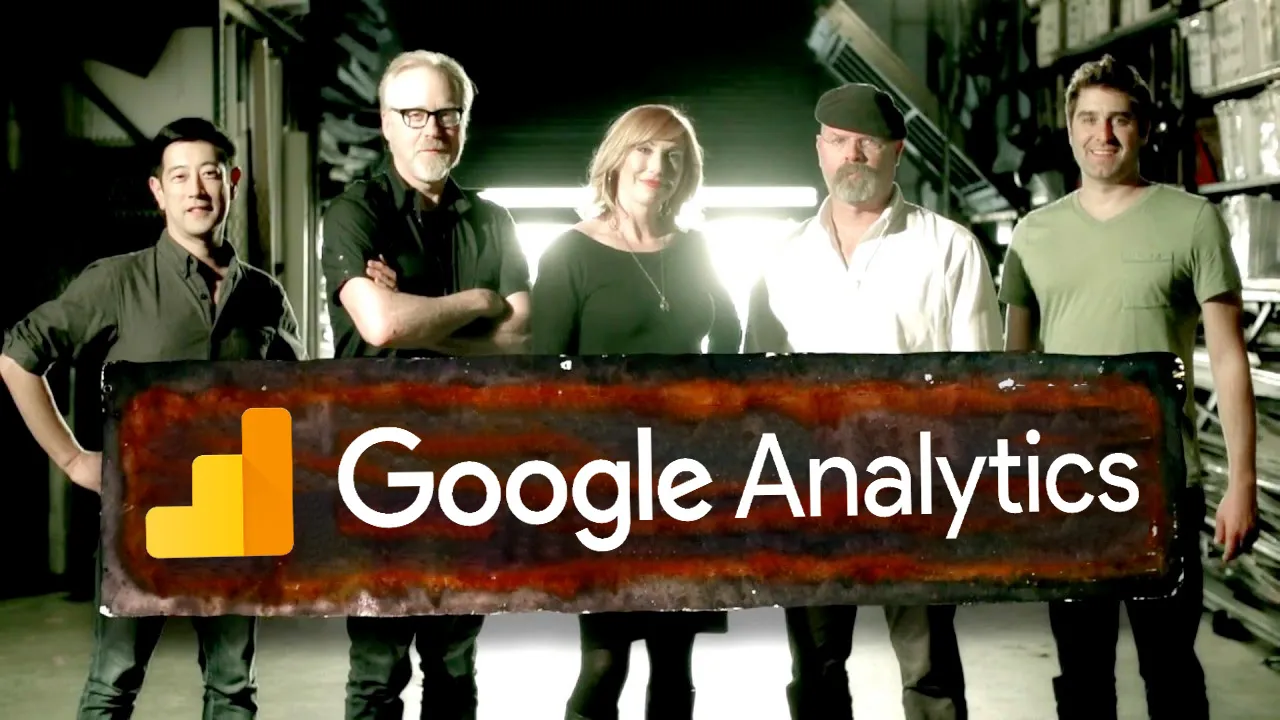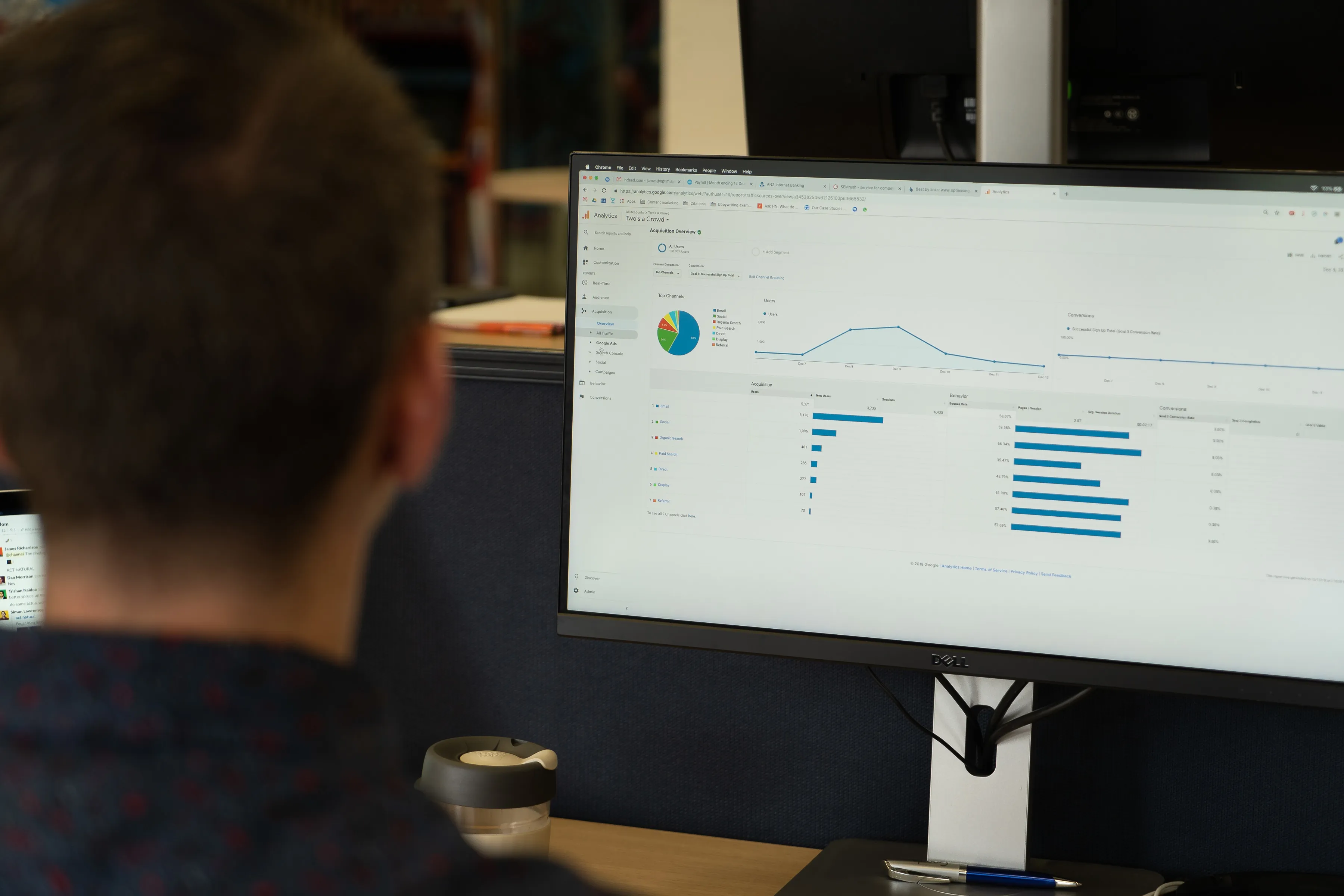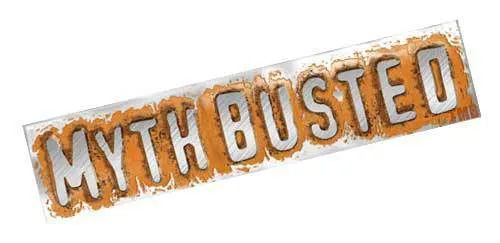'Google Analytics as a Ranking Signal' Myth Busting
Is Google Analytics a Ranking Signal?
The Theory
The theory that Google uses the Google Analytics data from your own website to rank it has never sat right with me. So now I want to finally put it to rest.
Let’s start with why it would make sense for Google to use Analytics data as part of their ranking algorithm.
The Numbers
Google has all of your data in front of them – why wouldn’t they use it? The search giant can see the number of visitors to your site, where they came from, the amount of time they spent on your site, which pages they viewed, and the (infamous) Bounce Rate.
To be fair, Bounce Rate does get thrown in a lot as a ranking signal which I think multiplies this myth.
To clear this mini-myth up quickly:
Google does know about Bounce Rate. But only when you bounce back to Google SERPs, and then potentially to another ranking website (affectionately known as “pogo-sticking”).
Google can’t tell if you bounce to another website directly without going back to the SERPs. Or if you close your browser after being on that website for 1 second.
Now onto the myth busting…

Coverage
Actual figures vary wildly, but BuiltWith has Google Analytics clocked at over 29 million installs (or 8% of its dataset) and W3Techs has it installed on 54% of the web.
I don’t think the idea of Google Analytics being installed on 1 in every 2 websites is unrealistic. It could easily be higher. It is an amazing achievement on Google’s part to get that sort of entrenchment.
If Google did announce, or somehow got caught out, using Analytics data to directly impact individual sites’ rankings, this could threaten the progress they have made to date. Site owners may be wary to install Analytics on their site for fear that Google would punish them as a consequence of underperforming site metrics.
Google already comes under heavy criticism. For example, they are already being torn apart from every angle for attempting to influence the AMP project too heavily. In my opinion, it would be a misstep on Google’s part to risk this sort of backlash, which may reduce their access to site data.
Data is Misleading
If you have a 100% Bounce Rate on your contact page, is that a bad signal? Or is it a sign that the page is converting?
What about if you have a very low number of average pages per visit? How would that be perceived?
There are too many cases where a high/low signal could be either positive or negative. Google would have to make a lot of assumptions here (and probably get a lot wrong).

Indexing
Some think that having Google Analytics installed on your website improves your indexing.
This claim has some potential credibility but it probably has less to do with Google Analytics and more to do with another Google product.
This is a little known trick from the early days of SEO – want to know the fastest way to get Googlebot crawling and indexing your website?
Add Google Analytics to your site? Nope.
Google Webmaster Tools (now known as Google Search Console)? Nope.
Ping tools? Nope.
Install Google Adsense!
The first time Google saw their ads trying to be loaded from your website, they immediately sent their robot army to go and work out what your site is about so that they could serve appropriate ads (read: make money).
To summarise, Google has very little incentive to crawl your site faster just because you install their analytics software. You are much more likely to receive prioritised indexing if you are about to open your wallet.
Gaming the System
What is something that SEO’s always do?
Ruin everything.
If Google Analytics was proven to impact your own search rankings, the first thing that would happen is people would try to fake their own data.
Don’t forget, Google Analytics runs entirely client-side (in your browser), so it’s easy to manipulate.
Want to artificially reduce your Bounce Rate? Easy. Want to buy thousands of fake hits to your site? There’s an app for that.
Or perhaps, every time someone bounces off your site, you push a different event to Google Analytics (yay, we made another conversion!).
The potential for Google Analytics to be manipulated by you or visitors to your website makes it an unreliable data source and one that Google would be unlikely to use as a ranking metric.
Negative ~~SEO~~ Google Analytics
By the same token as above, if I don’t try to fake my own data, what would I try next? Manipulating my competitor’s data?
I would start hitting up their websites and bouncing immediately. Or buying them traffic from shady parts of the web.
It’s already questionable whether generating spam links can impact your competitor’s rankings. Google wouldn’t want to amplify this problem into their other products.
Straight from the Horse’s Mouth
Google’s own, Gary Illyes, has gone on record as saying “We don’t use anything from Google Analytics in the ‘algo’.”
I’m not exactly sure what he means by the "algo", but Google would be using their massive Analytics data set to “train” their algo.
They could take any keyword, and using the data they already have from the 50% (maybe more) of those top 100 ranking websites, and check it against the metrics such as Time On Site, Page Views, or Bounces to other sites.
They would then simulate this on millions of other keywords, and using machine learning train their algorithm to look for other signals so that potentially matches up with what they are seeing in the corresponding Analytics data.

So, what now?
Thanks for reading this article for the past 3 minutes and 46 seconds, and not bouncing - hopefully we’re ranking #1 by now!
I’m afraid there’s no easy SEO hack, the only way forward is traditional hard work and technical SEO knowhow.

Daniel Zuccon
Co-Founder & Operations
With over 20 years experience in the industry, Daniel has produced an extensive number of web projects for some of Australia’s largest brands. His passion and interest for web development originated from building his first website in 1998 (in exchange for a skateboard, no less!) to running many successful boutique eCommerce stores and large online communities.
Since then, Daniel has made the leap of co-founding Optimising, the specialist SEO Agency that we know today. From its humble beginnings, the team has grown from a two-man enterprise to a large core team, growing into a highly respected digital agency.



